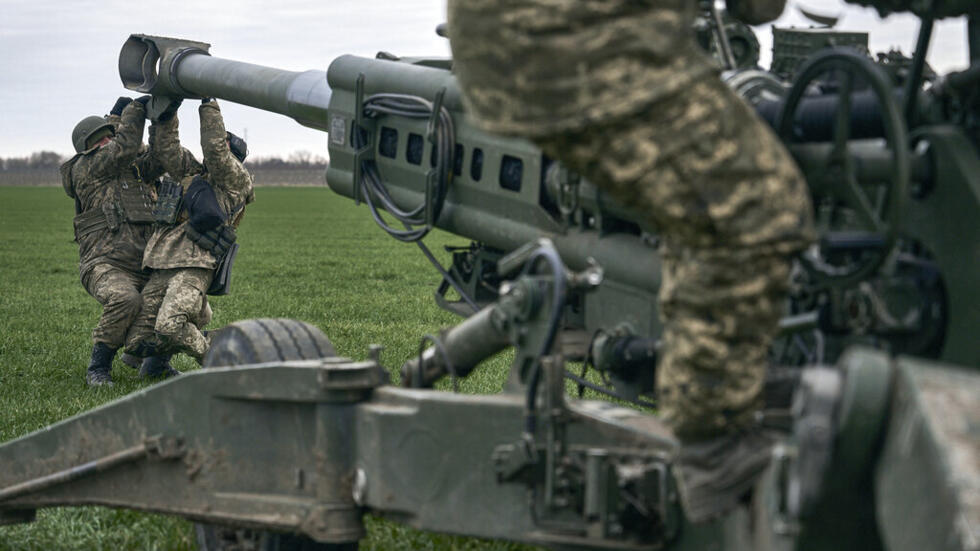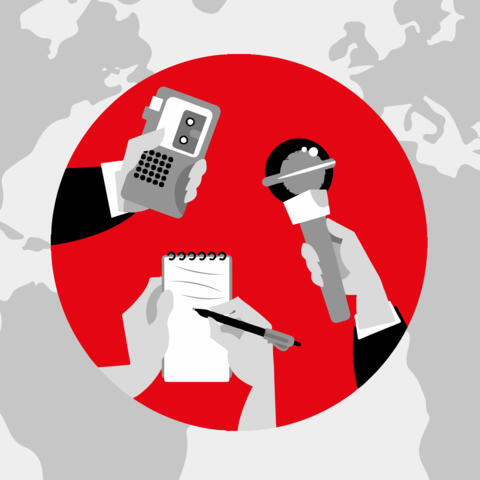How Turkey's support for Ukraine is a double-edged sword
Issued on:
Play - 04:49
Turkish companies are emerging as significant suppliers of weapons to Ukraine and are supporting United States efforts to resolve Kyiv's ammunition shortages. However, this support is a challenge to Ankara's efforts to balance its relationship with Moscow and its Western allies.

Turkey has managed to tread a fine diplomatic line by maintaining ties with both Russia and Ukraine since Moscow invaded its pro-Western neighbour in February 2022.
At the same time, Ankara has improved its relationship with the United States and has even coordinated with them in arms production to help Ukraine.
The United States' latest munitions factory in Texas, which goes online this month, uses the Turkish company Repkon's state-of-the-art equipment.
The new plant is vital to meeting the Ukrainian army's current shortages and ultimately aims to meet a third of the United States's needs.
Turkey analyst Sinan Ciddi of the Washington-based Foundation for Defense of Democracies says Ukrainians are running low because they've been using the Allied-supplied Howitzers that require a certain kind of ammunition.
"This has been the essential sort of weapon of choice that has prevented up until recently, the advancement, and recapture of Ukrainian towns by Russian troops," he tells RFI.
"That Turkey is stepping into this is remarkable," Ciddi continues, "simply because Turkey has a vast ability not only to procure and manufacture, but it's a vital sort of supply line for the US, which is also actually starting to run low based on the amount of shells it has supplied the Ukrainian partner right."
Source of tension
The United States Ambassador to Turkey, Jeff Flake, praised the collaboration as a sign of the growing importance of deepening bilateral ties.
But Turkish President Recep Tayyip Erdogan's close relations with his Russian counterpart Vladimir Putin have been a source of tension between Ankara and Washington.
Since the outset of Russia's invasion, Ankara has supported Kyiv but remained neutral, refusing to enforce Western sanctions against Moscow.
Meanwhile, another Turkish company, Baykar, is building a military drone factory in Ukraine.
"It's a little bit risky to establish a factory in Ukraine under the war conditions," warns defense analyst Tayfun Ozberk.
"It's very critical for Turkey, of course, establishing a factory in Ukraine – it has a political message, but it will not; I believe change Turkey's position in this war," added Ozberk.
For Sine Ozkarasahin, an independent Turkish defense analyst, "Turkey's definitely walking on thin ice."
Doubling down on support for Ukraine will surely test Ankara's policy of balancing ties with Moscow and its Western allies, she says.
Agree to disagree
Ozkarasahin maintains that this balancing act with Russia is very much Turkey's current diplomatic policy, which she calls "compartmentalisation, or "agree to disagree".
It means that Turkey and Russia can have different agendas on ongoing war in Ukraine or the situation in Syria, but still collaborate in different domains, such as energy trade.
"Ankara separates these things from each other, which forms one of the main pillars of its policy towards Russia and in the end, Turkey's a critical lifeline for Russia," she says.
While Turkey's defense industry is increasing its support for Ukraine and Western allies' efforts to supply the Ukrainian military, Ankara remains a vital trading partner with Russia.
Sinan Ciddi points out that the US Treasury has sanctioned Turkish companies supplying duel-use goods to the Russian military, including microchips, parts that go directly into the manufacture of high-end Russian weaponry that is being used against the Ukrainians.
"Turkey is playing both sides of this," he says, warning that Washington and Ukraine could pay a considerable price for Ankara's support.
"It really does put the US in a bind, having to keep increasingly or consistently quiet about Turkey's double dipping, and so it's a double-edged sword," Ciddi says.
Daily newsletterReceive essential international news every morning
Subscribe